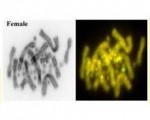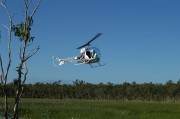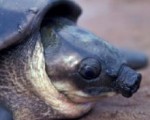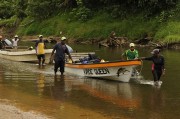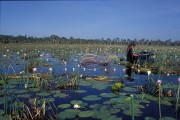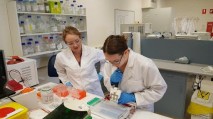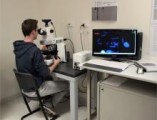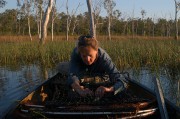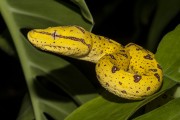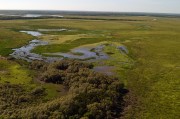PhD Scholarship
Sex in Dragons – Pinning down the mechanisms of sex determination in a reptile
We are currently seeking at least one, but potentially several, PhD students with interests in genetics, evolution and developmental genomics to investigate the molecular mechanisms through which sex is determined in the Australian central bearded dragon lizard, Pogona vitticeps.
Project Description
Reptiles exhibit an astonishing diversity in the means by which sex is determined early in development, genetic systems with male or female heterogamety, systems where temperature determines sex, and systems where environment and genotype interact to determine sex. The dragon lizard has female heterogamety, as in birds, yet temperature can over-ride this system to determines sex. This system is ideal for examining both the genetic mechanisms of sex determination and the manner in which incubation temperature can influence those mechanisms to influence sexual phenotype.
One project will examine differential expression in candidate sex-determining genes and the associated functional analysis necessary to discover the first sex determining gene in a reptile. The project will use established methods of examining differential gene expression in developing gonads (RT-qPCR and in situ hybridization) as well as developing innovative approaches for in vivo functional analysis of (to up-regulate and knock down) candidate sex determining genes (TOL2-mediated mis-expression and RNA interference, immunostaining).
The project is supported by an ARC Discovery Grant awarded to team Pogona led by Professor Arthur Georges, but involving a broad team spanning a number of leading researchers and institutions. The successful student will be based at the University of Canberra, but will be expected to work closely with primary supervisors Profs Tariq Ezaz and Craig Smith (Monash University).
The Ideal Candidate
The ideal candidate will possess experience in molecular genetics/genomics, reproductive biology or molecular biology. Knowledge of NGS approaches and analyses is desirable, while past work using the above-mentioned techniques and an interest in sex determination would be valuable. They candidate will be self-motivated and well-organized, with a demonstrated capacity to master the broad skill set necessary for the successful completion of a research project. They will be collegial and able to work alongside a wide variety of people in a multi-function laboratories. They will have a strong commitment to excellence in research and scholarship.
Stipend
Financial support for domestic and international students is expected to be available for a high achieving student through the scholarship round at the University of Canberra. These scholarships are highly competitive. To be competitive, candidates should have a first class honours degree or equivalent in a relevant area and other evidence of research potential (such as publication).
Eligibility
The University of Canberra scholarships are open to all nationalities. However, overseas candidates for whom English is not a first language must secure an IELTS score of 6.5 and have no individual score falling below 6.0 to satisfy our English language requirements.
How to Apply
Interested applicants are encouraged to make informal enquiries to Professor Tariq Ezaz. Please send your curriculum vitae, a sample of your written scientific work, and the names of two referees with a covering letter to:
Professor Tariq Ezaz e-mail: tariq.ezaz@canberra.edu.au
on or before September 10, 2017. We reserve the right to allocate a scholarship before this date.
Click here for further information on the project and access to publications.







